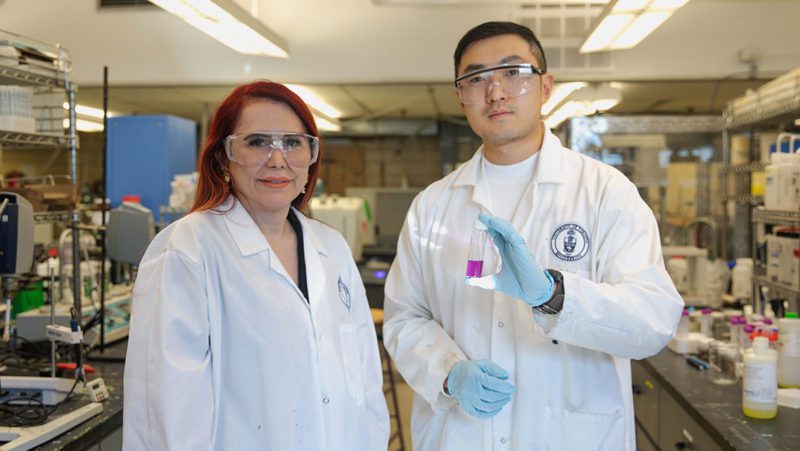A process used to extract caffeine from coffee beans could help to recycle EV batteries using less chemicals and leaving less secondary waste, new research says.
Whilst the growing electric vehicle market promises to significantly reduce transport-related carbon emissions, there is much concern about what happens to their batteries once they are no longer useful for high demand purposes.
The life expectancy of electric vehicle batteries can be as long as 10 to 20 years. After that, many degraded EV batteries can in fact be put to use in second life applications, but there comes a time when even low demand energy storage is too much for older cells.
Researchers from the University of Toronto say they have found a way to extract the precious metals used in EV batteries using a process called “supercritical fluid extraction.”
It differs from traditional processes such as pyrometallurgy and hydrometallurgy which are both energy intensive. Pyrometallurgy (“pyro” meaning fire”) produces greenhouse gas emissions, and hydrometallurgy (hydro meaning “water”) uses acids and bases, creating wastewater that must then be processed.
A crucial resource for recovery
“Getting these metals from raw ore takes a lot of energy,” says Jiakai (Kevin) Zhang, a PhD candidate in chemical engineering and applied chemistry who is the lead author on a new paper recently published in Resources, Conservation and Recycling.
“We are about to reach a point where many lithium-ion batteries are reaching their end of life,” says lead researcher Gisele Azimi, a professor in the departments of materials science and engineering and chemical engineering and applied chemistry.
“These batteries are still very rich in elements of interest and can provide a crucial resource for recovery.”
Supercritical fluid extraction, on the other hand, is a process that has been used for years to get the caffeine out of coffee beans.
Not only that, it uses carbon dioxide as a solvent instead of dangerous acids and bases. Though it is dangerous in large amounts because of the impact upon climate, carbon dioxide is much safer to use than acid and base chemicals.
Abundant, cheap and inert
“The advantage of our method is that we are using carbon dioxide from the air as the solvent instead of highly hazardous acids or bases,” she says. “Carbon dioxide is abundant, cheap and inert, and it’s also easy to handle, vent and recycle.”
The researchers say that by extracting metals such as lithium, cobalt, nickel and manganese from old batteries the industry will also be able to avoid using more energy to mine materials.
“If we keep mining lithium, cobalt and nickel for batteries and then just landfill them at end-of-life, there will be a negative environmental impact, especially if corrosive electrolyte leaching occurs and contaminates underground water systems,” says Zhang.
“If we recycle existing batteries, we can sustain the constrained supply chain and help bring down the cost of EV batteries, making the vehicles more affordable.”
Whilst research can take a long way to move towards commercialisation, the researchers say their findings are ready to progress to the next stage.
“We really believe in the success and the benefits of this process,” says Azimi.
“We are now moving towards commercialization of this method to increase its technology readiness level. Our next step is to finalize partnerships to build industrial-scale recycling facilities for secondary resources. If it’s enabled, it would be a big game changer.”

Bridie Schmidt is associate editor for The Driven, sister site of Renew Economy. She has been writing about electric vehicles since 2018, and has a keen interest in the role that zero-emissions transport has to play in sustainability. She has participated in podcasts such as Download This Show with Marc Fennell and Shirtloads of Science with Karl Kruszelnicki and is co-organiser of the Northern Rivers Electric Vehicle Forum. Bridie also owns a Tesla Model Y and has it available for hire on evee.com.au.

